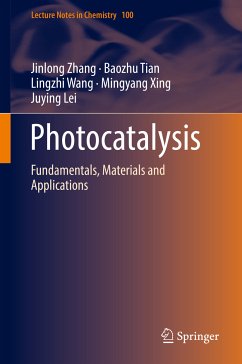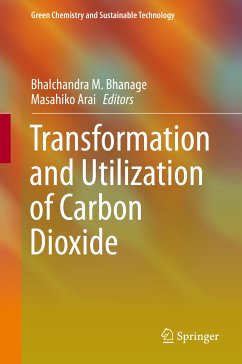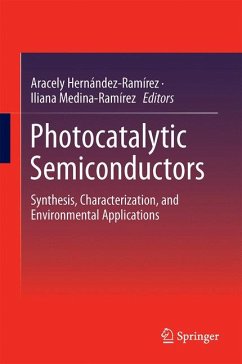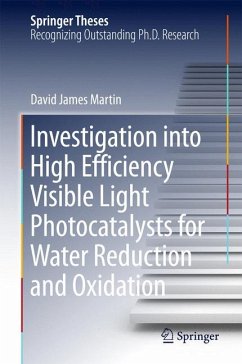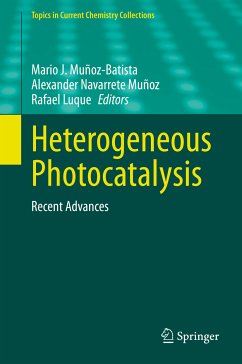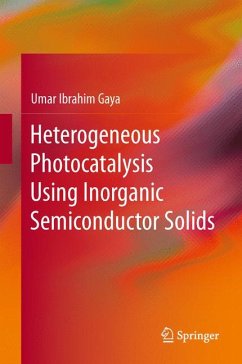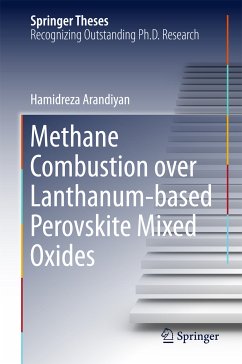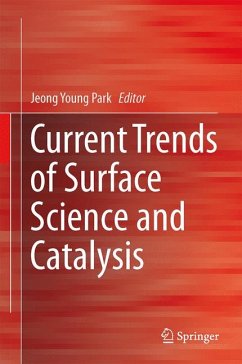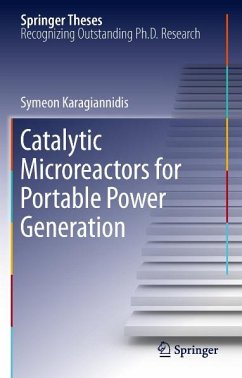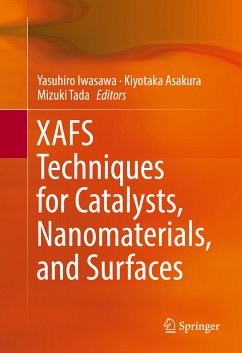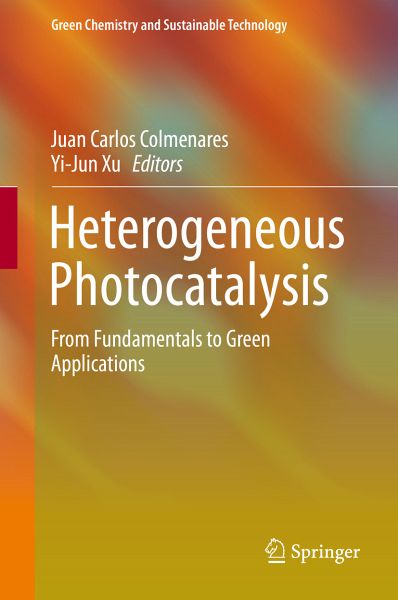
Heterogeneous Photocatalysis (eBook, PDF)
From Fundamentals to Green Applications
Redaktion: Colmenares, Juan Carlos; Xu, Yi-Jun
Versandkostenfrei!
Sofort per Download lieferbar
72,95 €
inkl. MwSt.
Weitere Ausgaben:

PAYBACK Punkte
36 °P sammeln!
The book explains the principles and fundamentals of photocatalysis and highlights the current developments and future potential of the green-chemistry-oriented applications of various inorganic, organic, and hybrid photocatalysts. The book consists of eleven chapters, including the principles and fundamentals of heterogeneous photocatalysis; the mechanisms and dynamics of surface photocatalysis; research on TiO2-based composites with unique nanostructures; the latest developments and advances in exploiting photocatalyst alternatives to TiO2; and photocatalytic materials for applications other...
The book explains the principles and fundamentals of photocatalysis and highlights the current developments and future potential of the green-chemistry-oriented applications of various inorganic, organic, and hybrid photocatalysts. The book consists of eleven chapters, including the principles and fundamentals of heterogeneous photocatalysis; the mechanisms and dynamics of surface photocatalysis; research on TiO2-based composites with unique nanostructures; the latest developments and advances in exploiting photocatalyst alternatives to TiO2; and photocatalytic materials for applications other than the traditional degradation of pollutants, such as carbon dioxide reduction, water oxidation, a complete spectrum of selective organic transformations and water splitting by photocatalytic reduction. In addition, heterogeneized polyoxometalate materials for photocatalytic purposes and the proper design of photocatalytic reactors and modeling of light are also discussed.
This book appeals to a wide readership of the academic and industrial researchers and it can also be used in the classroom for undergraduate and graduate students focusing on heterogeneous photocatalysis, sustainable chemistry, energy conversion and storage, nanotechnology, chemical engineering, environmental protection, optoelectronics, sensors, and surface and interface science.
Juan Carlos Colmenares isa Professor at the Institute of Physical Chemistry, Polish Academy of Sciences, Poland.
Yi-Jun Xu is a Professor at the State Key Laboratory of Photocatalysis on Energy and Environment, College of Chemistry, Fuzhou University, China.
This book appeals to a wide readership of the academic and industrial researchers and it can also be used in the classroom for undergraduate and graduate students focusing on heterogeneous photocatalysis, sustainable chemistry, energy conversion and storage, nanotechnology, chemical engineering, environmental protection, optoelectronics, sensors, and surface and interface science.
Juan Carlos Colmenares isa Professor at the Institute of Physical Chemistry, Polish Academy of Sciences, Poland.
Yi-Jun Xu is a Professor at the State Key Laboratory of Photocatalysis on Energy and Environment, College of Chemistry, Fuzhou University, China.
Dieser Download kann aus rechtlichen Gründen nur mit Rechnungsadresse in A, B, BG, CY, CZ, D, DK, EW, E, FIN, F, GR, HR, H, IRL, I, LT, L, LR, M, NL, PL, P, R, S, SLO, SK ausgeliefert werden.



